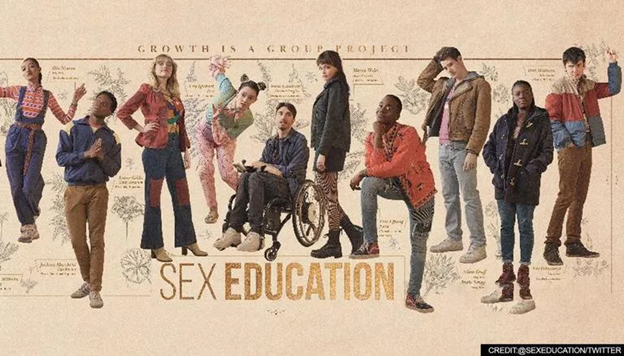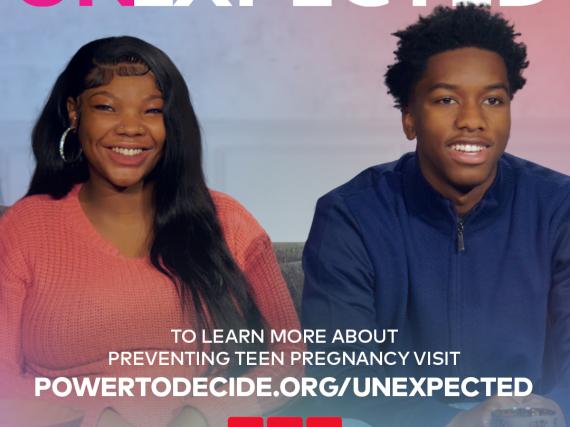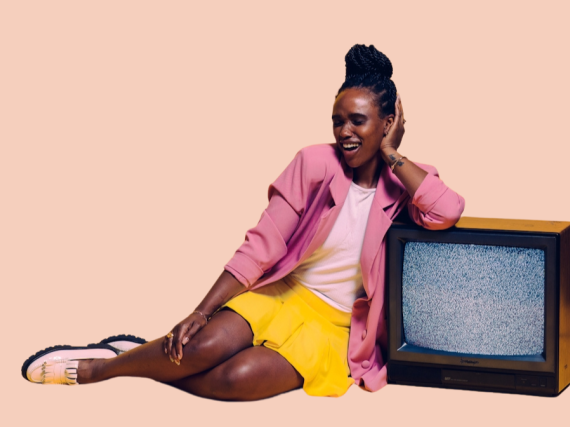Let’s Talk About Sex (Education)
What better way to celebrate Let’s Talk Month than to watch—or rewatch—Sex Education on Netflix? If you haven’t yet ventured into Sex Education’s warm, funny, and super candid world, you’re in for a treat. After pandemic-related delays, the show’s third season premiered last month and has already been renewed for a fourth season.
The goal for Let’s Talk Month is to open up honest, judgment-free, and informed conversations about sex with the young people in your life. It’s not one giant awkward talk: ideally, it’s an ongoing dialogue that shifts and evolves over time. One of the best ways I’ve found to open up these conversations with my teenagers is to point to something in pop culture before easing into a more personal, relevant discussion with less heat and pressure. More than half of young people age 12-24 have said that something in pop culture has helped spark a helpful conversation with the adults in their lives about sex.
While sex education in schools is necessary, it’s not sufficient—and varies widely in quality, content, and relatability. Often, what’s being taught in class isn’t aligned with students’ real questions or experiences.
With this in mind, the premise of Sex Education is deceptively simple: Otis, the awkward, sexually inexperienced son of Dr. Jean Milburn—who runs a sex therapy practice out of their home—sets up his own sex therapy clinic in his high school. In secret. For money. With intimidatingly smart Maeve. With whom he begins to fall in love. Otis and Maeve provide practical, helpful, and compassionate information and advice to their struggling peers, who are grappling with every type of relationship and sex dilemma imaginable. And whose sex education classes range from misinformed to downright harmful.
The appeal of Sex Education, which Buzzfeed calls an “adorably funny and important coming-of-age masterpiece,” is that its portrayals of emotional vulnerability are just as raw and unfiltered as its unfiltered portrayals of sex. Along with the show’s teenage love triangles and heartbreak, Jean navigates an “elderly pregnancy” at 48 years old and her mixed feelings about her partner Jakob—a reminder that we are all figuring out relationships all the time. The show celebrates sexuality in all its forms, with a moving storyline about Cal—a non-binary student—whose efforts to just be themselves run up against everyone else’s expectations and desires for them.
At the core of every relationship in Sex Education is the pursuit of honest communication and finding someone to trust enough to be who you truly are. The series explores true intimacy with the same vigor that it explores questions about sex.
Season three also offers some stellar moments of actual sex education: the clinic nurse explains without shaming or judgment why pulling out is not a reliable way to avoid pregnancy. She offers a masterclass on HIV prevention and PrEP. Instead of accepting a “scared straight” abstinence-only class, Maeve rebuts that scaring teenagers away from sex doesn’t work—and that young people deserve to know about pleasure and about all their options. Essentially, that talking is power.
Teens have always—and will always—have questions about sex. They want, need, and deserve judgment-free, straightforward answers. Sex Education’s creator, Laurie Nunn, explained, “I really wanted to explore how dangerous I think shame can be when it is weaponized. And I think so many people have had experiences at school which make them feel ashamed about their own sexuality or their own identity or the way that they express themselves. And I think sadly, you know, even in 2021, this is still really rife.”
One of the oldest myths related to sex education is that teaching young people about sex, love, relationships, pleasure, birth control, and the context in which it all happens will “encourage” them to have sex. In fact, accurate, judgment-free, and comprehensive sex education helps young people live safer, healthier, and more fulfilling lives.



